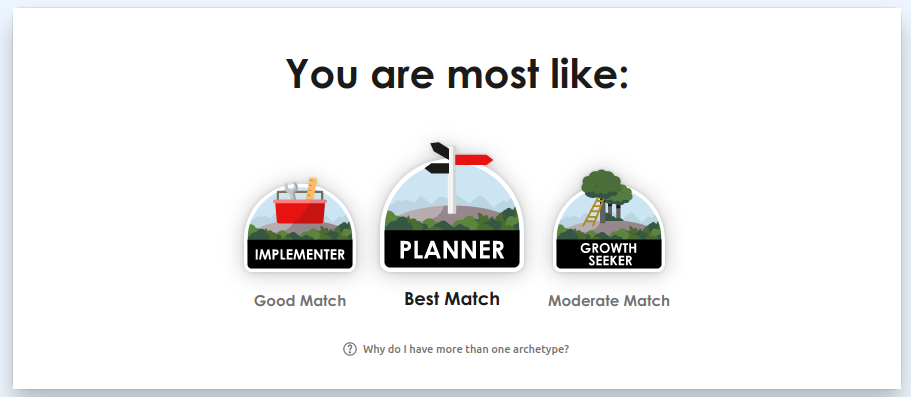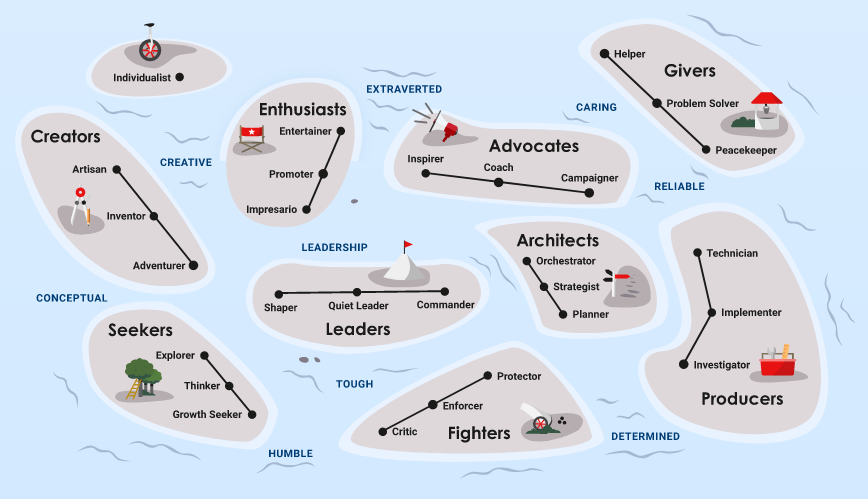Principles You Results
You are most like The Planner
Planners are driven to put structure and systems around goals, translating ideas into practical and achievable plans. They tend to be planful, methodical and results-oriented.
| Planner Talents | Planner Growth Needs |
|---|---|
| Taking direction and seeing the future with a balanced sensibility for how things really work | Being patient with people who are less organized and diligent than them |
| Collecting and making sense of numerous data points and information | Recognizing that perfection is difficult and can be stressful to achieve |
| Developing, adjusting, and creating backup plans and reliable execution | Understanding that the impact of emotions on their plans can’t be perfectly accounted for |
| Applying reason and practicality to decisions and choices and developing precise schedules and timelines | Staying flexible and not overly rigid; things don’t always go as planned |
Additional Attributes
The Implementer
Implementers organize and structure people and processes to reliably execute tasks. They tend to be precise, reliable, results-oriented and more concrete and practical than philosophical.
The Growth Seeker
The Growth Seeker
Growth Seekers are defined by a deep passion for learning and personal growth and development. They tend to be curious, humble, open to new ideas and experiences, and adaptable.
Archetype Groups
My Top Archetypes
Architects:engage with creating the strategic planning and oversight needed to bring people and resources together and get things done.Producers:tend to be “Can do” people who are practical and pragmatic in dealing with everyday issues. They may be more technical than theoretical in their approach to challenging projectsSeekers:tend to be deeply motivated to challenge themselves and pursue projects that promote personal growth
Archetypes You are least like
Inventor
Inventors have high curiosity and creativity, which often leads them to develop new products and ideas.
Individualist
Individualists walk to the beat of their own drum and find unique ways of expressing themselves and their originality.

